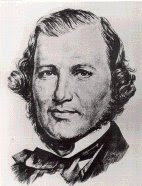Mike Brock published an interesting article today in which he endeavoured to draw a link between left-wing government interventionist ideology and religious conservatism. This link, his article seemed to imply, was socialism.
While his argument is for the most part well-reasoned, it isn't socialism that links religious conservatism with welfarism - it's statism.
Mike Brock:
Raise your hand if you think social society should have a strong morality attenuated through law.
Socialism: Yes, socialist principles of collectivism.
Ann Coulter: Yes, based on the teachings of the Bible.
Liberalism: No, morality is not the business of the state.
Raise your hand if you think citizenship should be connected to moral systems?
Socialism: Yes, those who do not accept socialism in a socialist society should not be full members therein.
Ann Coulter: Yes, those who conform to the Christian traditions of society are fuller citizens.
Liberalism: No, plurality of belief is not only acceptable, but healthy.
Raise your hand if you think adherence to moral codes are more important than outcome?
Socialism: Yes. It is preferable to have fairness than some with more and others with less.
Ann Coulter: Yes. Traditions like marriage should be maintained irrespective of any outcome.
Liberalism: Perhaps. In so far as the adherence is to the principle of respect of others equal rights.
Is one of the purposes of policing to enforce social moral codes?
Socialism: Yes. The use of police to quell political dissension and anti-social behaviour is important.
Ann Coulter: Yes. More police! More jails! Arrest people who do drugs, and engage in perverse sexual activities!
Liberalism: Absolutely not.
This evaluation of the respective positions of religious conservatives and socialists is accurate.
Taking these areas of similarity to heart, Mr. Brock reaches the following conclusion:
Social conservatives have appropriated love for liberty, but only so far as economics goes. They want lower taxes and less government services, but they want strong laws, stronger police, more jails, and bigger militaries--which ironically, end up costing as much, if not more than the social services they detest. They support the idea of “big government” while pretended to support “small government”, through a redefining of the term “big government”.
The real thread that ties welfarism to social conservatism is the idea that the government is justified in intervening in private matters for reasons other than the prevention of direct physical harm, to wit, the violation of individual rights.
However, I'm confounded by Mr. Brock's derision for strong laws, a strong police force, good jails, and big militaries since these are precisely the institutions that the government is justified for having.
Strong laws are necessary to protect individual rights. This idea should be considered in contrast to the existence of unjust laws, the extent of a law's 'justness' to be determined by employing the standard of protecting individual freedom. Violations of this standard can be witnessed in the words of opponents of homosexual marriage and the legalization of drugs. Having strong laws simply means effectively guarding the rights of our citizens and, in this way, is perfectly consonant with liberalism and freedom. Moreover, a strong police force is crucial to the defence of rights in the same way that a strong military is essential to the defence of these rights from threats from abroad.
Accordingly, Mr. Brock's comments reveal what I believe to be a particularly harmful streak in the libertarian movement: the identification of any government as bad government. Evidently, this perspective has roots in anarchism. In reality, limited government is necessary for protecting individuals from coercion. There are three legitimate government functions: protection from domestic rights-abusers through a robust police force, protection from rights-abusers abroad through a strong military, and the administration of just laws through a judiciary. Any actions taken by the government which exceed these legitimate roles can be properly identified as statist.
Before we are able to coherently defend liberty, we must identify what constitutes a violation of our rights. Leftism - the partial or complete state ownership of the means of production, distribution, and exchange - is a prime example of illegitimate government control. Social conservatism - the substantial centralized control over social affairs - is guilty of the same violation of liberty for the same reasons.
Mike Brock claims that welfarism and social conservatism are two sides of the same coin and, to a certain extent, this is accurate. However, that coin has not been minted with the material of socialism, which is merely another name for the left-wing ideology of intervention in the marketplace. The two sides are connected by the idea of statism and this should be the real enemy for lovers of liberty on the left and on the right.
Identifying the enemy is the first step to conquering him.












|